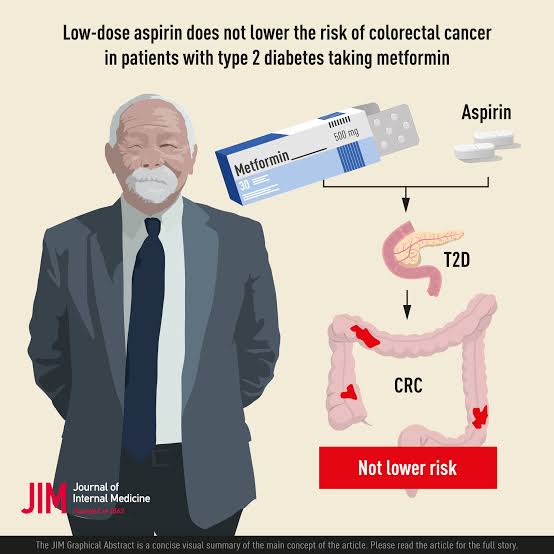
The benefit of aspirin in reducing the risk of colon cancer is limited to people whose genes secrete high levels of the enzyme (15-PGDH), according to a new study.
Scientists said in the journal Science Translational Medicine that people with low levels of this enzyme do not benefit at all from aspirin.
The study, which included thousands of participants, showed that the risk of developing colon cancer was reduced by half among those with high levels of the enzyme thanks to regular use of aspirin, and this percentage may reach two-thirds, but among those with low levels of the enzyme, taking aspirin reduced the probability of developing colon cancer by 10%. % Just.
“People with high levels of the enzyme benefit from taking aspirin,” said Sanford Markowitz, a professor at Cleveland College of Medicine, who co-led the study. “The enzyme actually appears to be the main factor in the significant reduction in colon cancer risk.”
Identifying people who can benefit from aspirin is important because taking it carries the risk of ulcers and gastrointestinal bleeding, which can be fatal.
Because the risks to the digestive system are so great compared to the uncertain benefits, the US Preventive Services Task Force, which advises the US government, advised against the use of aspirin to prevent colon cancer among the general public.
“But if you can link prevention to people who are more likely to get the disease and more likely to benefit from aspirin, that could change the equation,” said Andrew Chan, MD, of Massachusetts General Hospital in Boston, who led the study with Markowitz.
Both the enzyme (15-PGDH) and aspirin target what are called “prostaglandins,” which are molecules that help colon cells grow and increase inflammation in the colon, which increases the risk of cancer.
Aspirin reduces the production of prostaglandins, while the enzyme destroys them, and the result is low levels of cancer-causing molecules.






